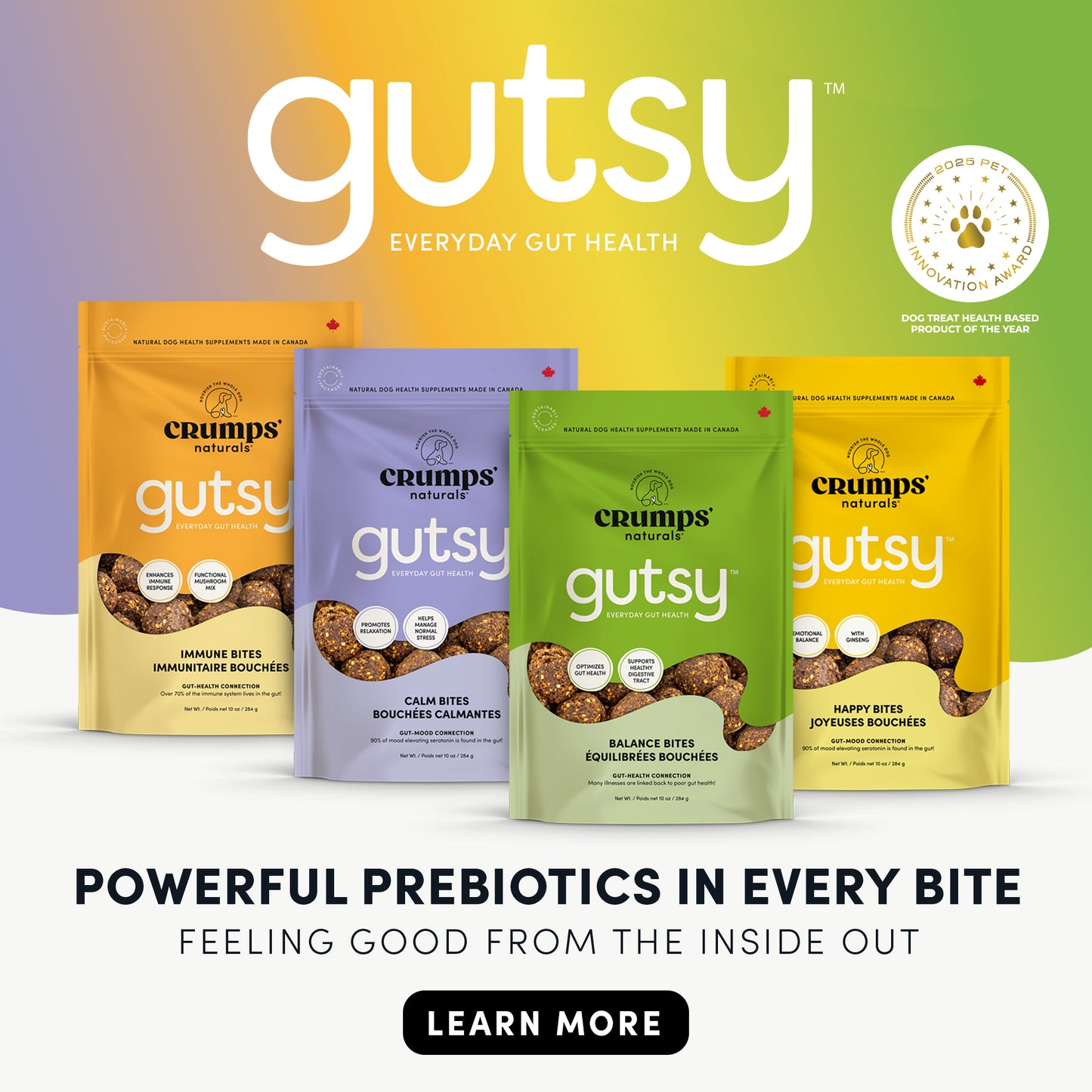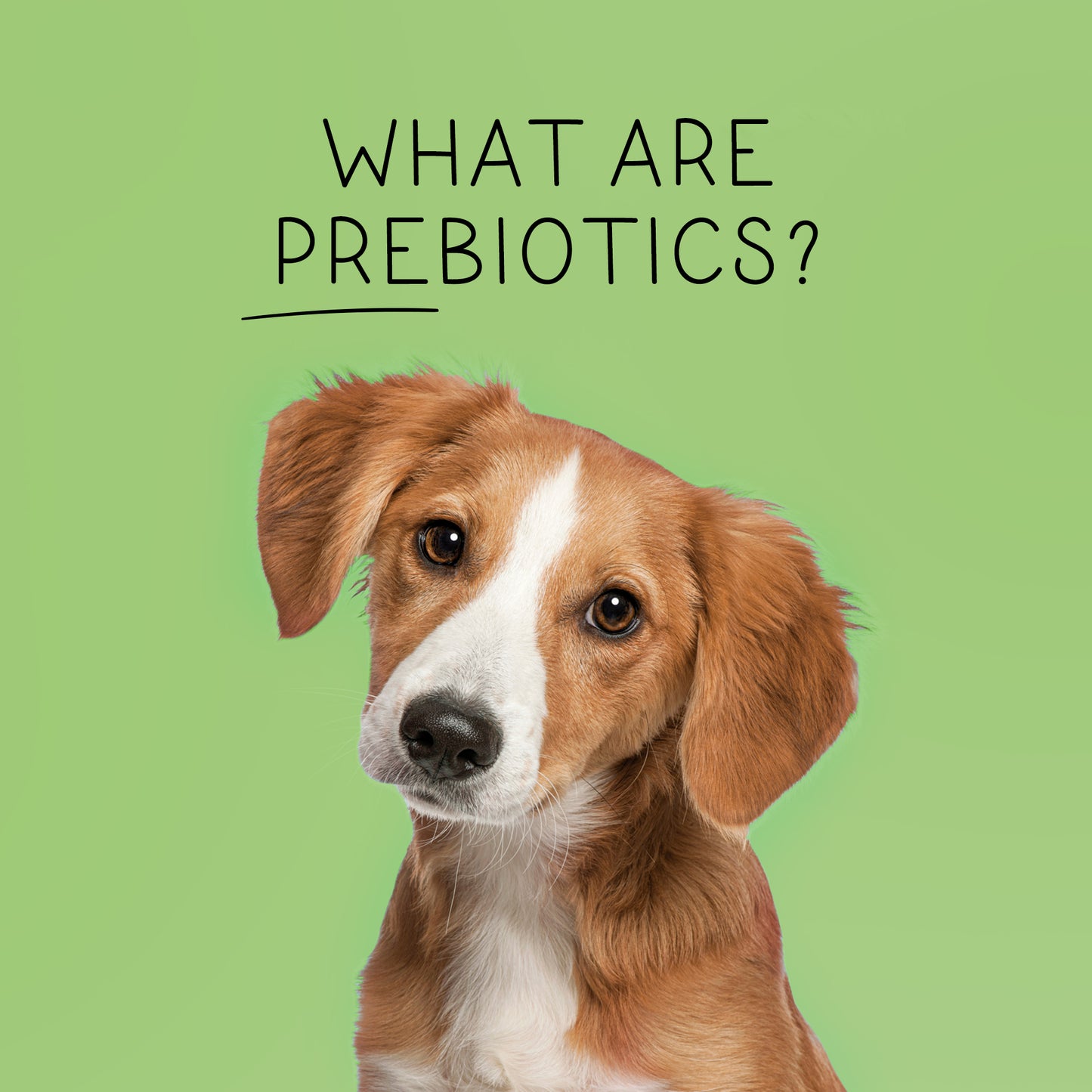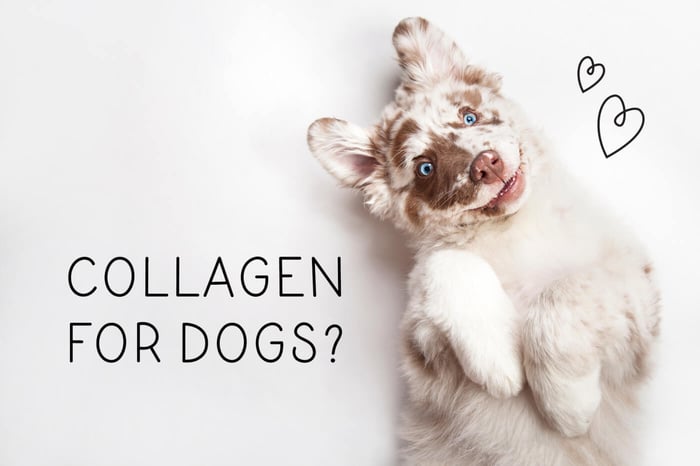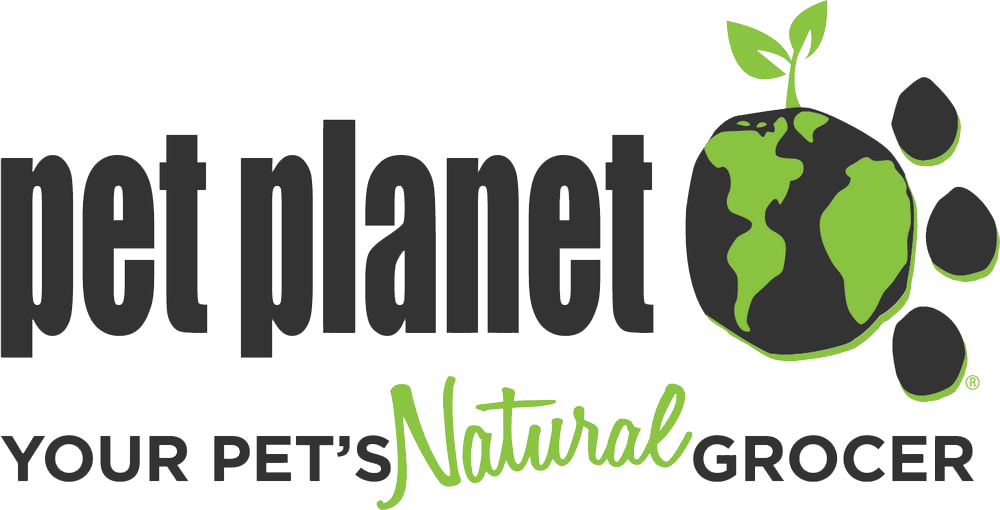As dog parents, we only want the best for our four-legged family members. That’s why we nurture the whole health of our pups by nourishing them with treats that have only natural ingredients, which are carefully curated to support their physical, emotional, and mental health and well-being. But what should we do if we’re reading an ingredient label, or talking to a friend about certain ingredients, and are not exactly sure whether the ingredients are good or bad for our dogs?
Well, first off, it’s always a good idea to run any ingredient questions past your veterinarian. However, we also understand that may not always be a practical option, which is why we’re going to help you sort out fact from fiction when it comes to some common ingredient misconceptions.
So, let’s take a closer look at four popular ingredients found in dog treats and dog food – guar gum, coconut glycerin, oyster shells, and rosemary extract – and examine common misconceptions about these ingredients, as well as the truth about them.
Myth 1: Guar Gum is Unnatural and Unhealthy
Some people think guar gum is a synthetic or unhealthy additive.
Reality: Guar gum is actually a natural carbohydrate that comes from the seeds of the guar plant, which is an annual legume that goes by the botanical name Cyamopsis tetragonoloba.
Myth 2: Guar Gum Offers No Health Benefits
There are people out there that think guar gum is only a filler with no real health benefits for dogs.
Reality: Guar gum is used to stabilize, emulsify, and thicken the texture of certain foods. The general composition of guar gum is approximately 75% soluble fiber and 7% insoluble fiber. Since guar gum is high in fiber, some health benefits of guar gum include supporting digestive health and helping to normalize bowel movements, improving satiety and aiding in weight management, and lowering LDL (bad) cholesterol levels, while increasing HDL (good) cholesterol levels.
Myth 3: Guar Gum is Harmful in Any Amount
A common misconception is that digesting any guar gum at all can be harmful.
Reality: It’s true that consuming large amounts of guar gum could lead to negative effects, such as digestive issues like bloating. However, the U.S. Food and Drug Administration (FDA) has stated that guar gum is generally recognized as safe when used in accordance with good manufacturing or feeding practice. So, as long as guar gum is consumed in moderation there should not be any issues.
COCONUT GLYCERIN
Myth 1: Coconut Glycerin is Unsafe
The word “glycerin” tends to scare some people, leading them to think that anything glycerin-related is not safe to consume.
Reality: Glycerin is a type of carbohydrate known as a sugar alcohol. An odorless liquid with a sweet taste, glycerin is a humectant compound that works to retain moisture in treats so that they don’t dry out. Coconut glycerin is a natural, plant-based product derived from coconut oil that keeps treats soft and chewy. The FDA deems food-grade glycerin safe for animals when used in accordance with good manufacturing practice and in proper concentrations.
Myth 2: All Glycerin is the Same
Reality: Not all glycerin products are created equal. The source of glycerin is extremely important when it comes to quality and nutritional content as some types of glycerin may contain impurities or additives.. Coconut glycerin is considered to be natural and better for the environment as it is sustainable unlike some of the other vegetable glycerin sources.
Myth 3: Coconut Glycerin Can Lead to Dental Problems and Blood Sugar Level Spikes
It’s been stated that chewy treats with glycerin can lead to dental problems and glycerin-rich treats can lead to spikes in blood sugar levels.
Reality: Yes, glycerin has a sweet taste, but unlike sugar, which is another option that some other products use to help retain moisture in treats, glycerin, including coconut glycerin, does not cause dental problems or spikes in blood sugar levels in dogs. Since glycerin is not readily fermented by bacteria in the mouth, it does not produce acids that lead to tooth decay. This makes coconut glycerin less likely to contribute to dental cavities in dogs. Glycerin also has a minimal impact on blood sugar levels because it has a low glycemic index. Therefore, it is absorbed more slowly by the body, leading to a gradual release of energy rather than a rapid spike in blood sugar.
OYSTER SHELLS
Myth 1: Oyster Shells Offer No Nutritional Value or Benefit
Reality: Not only are oyster shells a valuable source of calcium, which are essential for strong bones and teeth, but ground oyster shells in dog treats can also scrape the teeth as a dog chews, acting like a toothbrush. This scraping action can aid in the removal of plaque and tartar on canine teeth.
Myth 2: Oyster Shells Can Cause Allergies
Reality: Shellfish allergies in dogs are rare, and if they do occur, they are usually related to meat – not the shells. The calcium from the oyster shells is unlikely to cause such allergies.
Myth 3: All Oyster Shells are the Same
Reality: The quality and preparation of oyster shells truly matters. Properly cleaned and ground oyster shells are safe for dogs, while unprocessed or contaminated shells can pose serious risks.
ROSEMARY EXTRACT
Myth 1: Rosemary Extract is Harmful
Reality: Rosemary extract is considered non-toxic to dogs, according to the ASPCA, and the FDA has classified rosemary extract as generally regarded as safe for dogs. In fact, rosemary extract is often used as a natural preservative to extend the shelf life of dog treats due to its antioxidant properties.
Myth 2: Rosemary Extract Has No Nutritional Benefits
Reality: Yes, the main role of rosemary extract is as a preservative, but rosemary also contains antioxidants, which can contribute to the overall health of your dog by reducing oxidative stress.
Myth 3: All Dogs are Allergic to Rosemary Extract
Reality: It’s possible that some dogs may be sensitive or allergic to rosemary, but rosemary is not a common allergen for most dogs.
--
Article Sources:
https://www.linkedin.com/pulse/guar-gum-powder-top-5-myths-vs-facts-durgaenterprises-oyohf
https://www.accessdata.fda.gov/scripts/cdrh/cfdocs/cfcfr/CFRSearch.cfm?fr=182.20&SearchTerm=rosemary




















